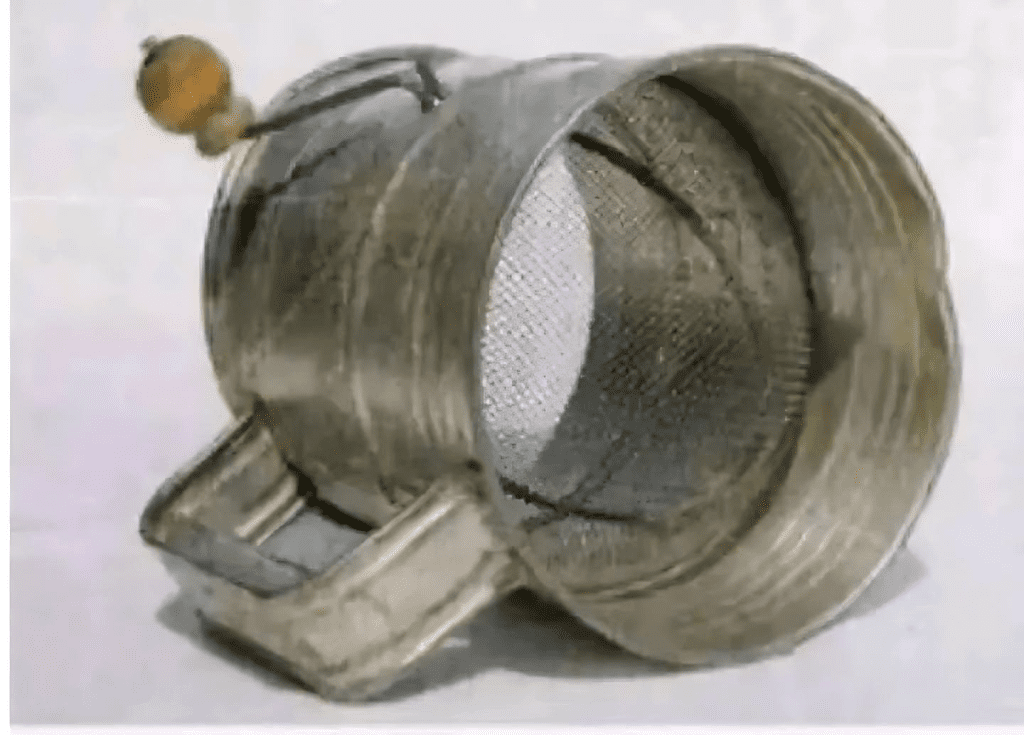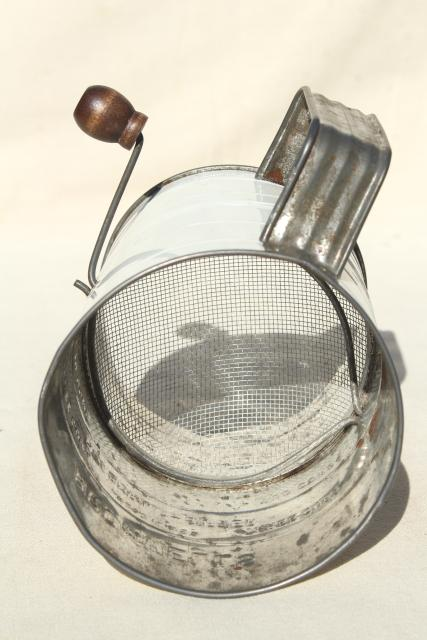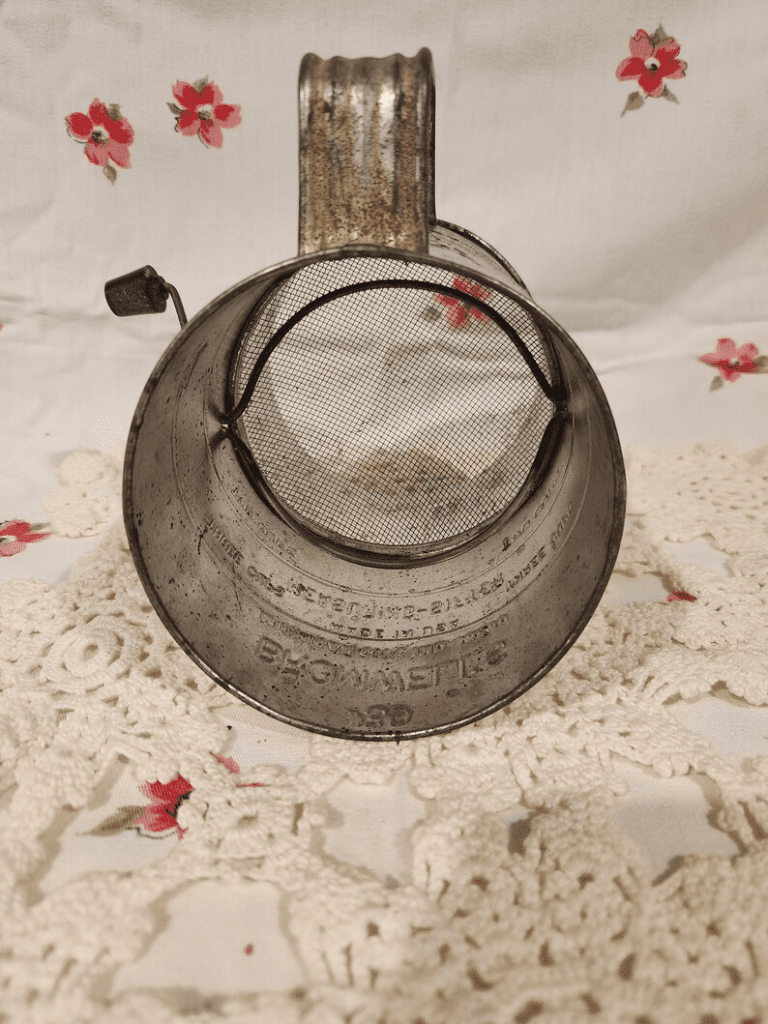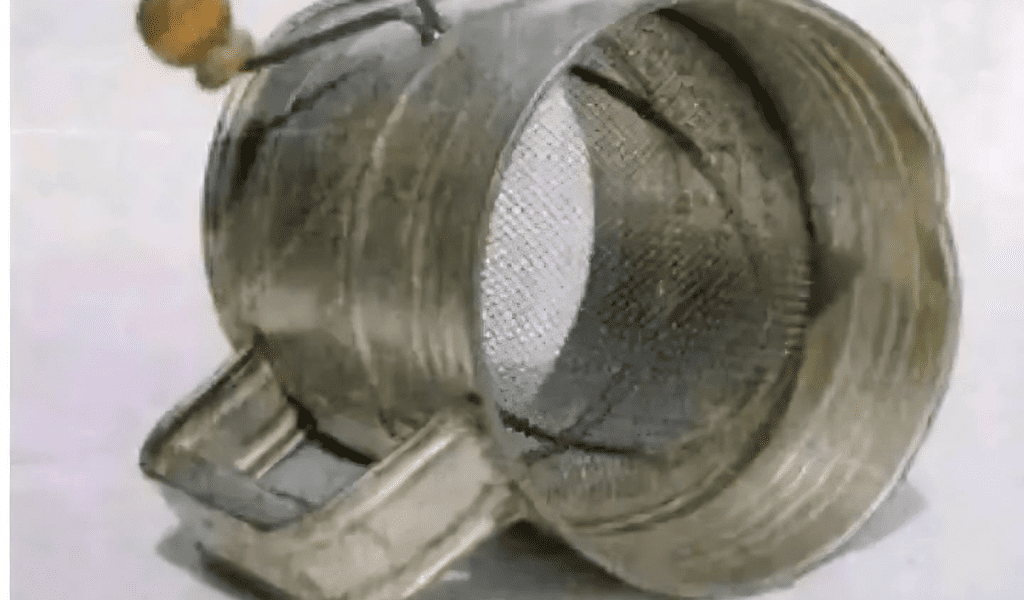Baking is an art, and like any great artist, bakers rely on specific tools to achieve perfection. Among these tools, the flour sifter stands out—not for its flashiness, but for its transformative impact. This unassuming device might look simple, but it can take your baking to a whole new level. Curious about what makes the flour sifter so special? Let’s explore its magic and discover how it can make your baked goods lighter, fluffier, and downright irresistible.
What Exactly Does a Flour Sifter Do?

At first glance, the flour sifter might seem like an extra step in the baking process. However, it’s far more than that. A sifter’s primary job is to break up clumps, aerate the flour, and ensure it’s evenly distributed within your batter or dough. Sifting flour removes lumps and creates a fine texture that can significantly enhance your baked goods.
But that’s not all! A flour sifter also gently mixes ingredients. When you sift flour with baking powder, sugar, or cocoa powder, the sifter ensures even distribution, resulting in consistent flavor and texture. Without a sifter, you could end up with unevenly mixed ingredients and unpleasant surprises in your cake.
Why Sifting Flour Is Essential for Perfect Baking
Wondering why sifting is such an essential step? Why not just toss everything into the bowl and mix? Here’s why skipping the sifting step can lead to less-than-ideal results.
Achieving the Perfect Texture
Picture biting into a cake that’s dense and uneven—it’s not very appealing, right? Sifting breaks down the flour into finer particles, giving your baked goods a soft, fluffy texture. This small step creates a noticeable difference, elevating your baking from good to great.
Ensuring Accurate Measurements
Unsifted flour tends to compact, which can lead to using more flour than the recipe calls for. Sifting helps ensure accuracy, especially in delicate recipes where precision matters. By fluffing up the flour, you get the exact measurement your recipe needs, resulting in better consistency in your final product.
Removing Impurities and Clumps
Occasionally, flour can contain impurities or tiny clumps that affect texture. Sifting helps filter these out, leaving you with smooth, clean flour. This is especially useful for recipes that require a delicate crumb, like chiffon cakes or soufflés, where a clean, fine texture is essential.
Types of Flour Sifters: Finding the Right Fit for Your Kitchen
Not all flour sifters are the same, and the one you choose can impact your sifting experience. Here’s a look at the different types to help you pick the best one for your needs.
Crank-Style Flour Sifter
The crank-style sifter is the classic choice, with a hand-crank that pushes flour through the mesh. It’s easy to control, making it ideal for precision. However, sifting large quantities may feel tiring if you’re cranking for an extended time.
Squeeze-Handle Flour Sifter

This type uses a trigger mechanism to shake the flour through the mesh. It’s quicker than the crank-style, but it can be tough on the hands, especially if you have arthritis. It’s great for small sifting tasks, adding efficiency without compromising quality.
Mesh Strainer (Handheld)
If you don’t own a traditional sifter, a fine-mesh strainer works in a pinch. Just add flour to the strainer and tap or shake it gently. This method might take a bit longer, but it’s a versatile alternative that’s easy to clean and perfect for small amounts.
Each type has its strengths and weaknesses, so trying a couple can help you determine which one complements your baking style best.
Tips for Using Your Flour Sifter Effectively
Once you’ve got a sifter, knowing how to use it well can make a big difference. Here are some simple tips for getting the most out of this handy tool.
Don’t Overfill the Sifter
Filling the sifter to the brim can cause flour to spill out, creating a mess. Instead, add flour in small batches if you need to sift a large amount. This keeps things clean and ensures better control.
Tap, Don’t Force
If you encounter a stubborn clump, avoid pressing hard on the sifter. Instead, tap the side of the sifter lightly to break up the clumps. Forcing them through can damage the mesh or allow larger pieces to fall through.
Sift Just Before Adding to Your Recipe
For best results, sift your flour right before adding it to your recipe. This keeps the flour light and airy, preventing it from settling or compacting again after sifting.
Creative Ways to Use Your Flour Sifter Beyond Flour

Did you know your flour sifter is more versatile than you might think? Here are a few additional uses for this tool that go beyond sifting flour.
Dusting Desserts with Powdered Sugar or Cocoa
A sifter provides a light, even dusting for powdered sugar or cocoa powder on cakes, cookies, and pastries, giving them a professional touch. It’s perfect for adding that final, delicate finish to your creations.
Mixing Dry Ingredients
When a recipe calls for evenly mixed dry ingredients like flour, cocoa powder, and baking powder, a sifter can be the perfect tool. Simply add the ingredients to the sifter and give it a few taps for a quick, even blend.
Removing Lumps from Other Ingredients
Powdered sugar and cornstarch can sometimes clump together, affecting the texture of your recipe. Running them through the sifter smooths out any lumps and ensures a finer, more consistent texture.
The Flour Sifter: A Baker’s Secret Weapon
In the world of baking, the flour sifter might not steal the spotlight, but it’s a baker’s best friend. This tool’s ability to aerate, mix, and refine ingredients makes it essential for creating perfect textures and flavors. Whether you’re baking light pastries, hearty bread, or delicate cakes, a sifter ensures that every bite is as fluffy and delicious as it should be.
Conclusion: Embrace the Art of Sifting for Baking Success
Adding a flour sifter to your baking routine might seem like an extra step, but it’s one that’s worth every second. This simple tool transforms flour into a soft, fine ingredient that integrates seamlessly with your other ingredients, giving your bakes that professional touch. The next time you’re ready to bake, don’t skip the sifter. Embrace the art of sifting, and discover just how much this humble tool can enhance the flavor, texture, and overall quality of your baked goods. You’ll be amazed at the difference it makes!
